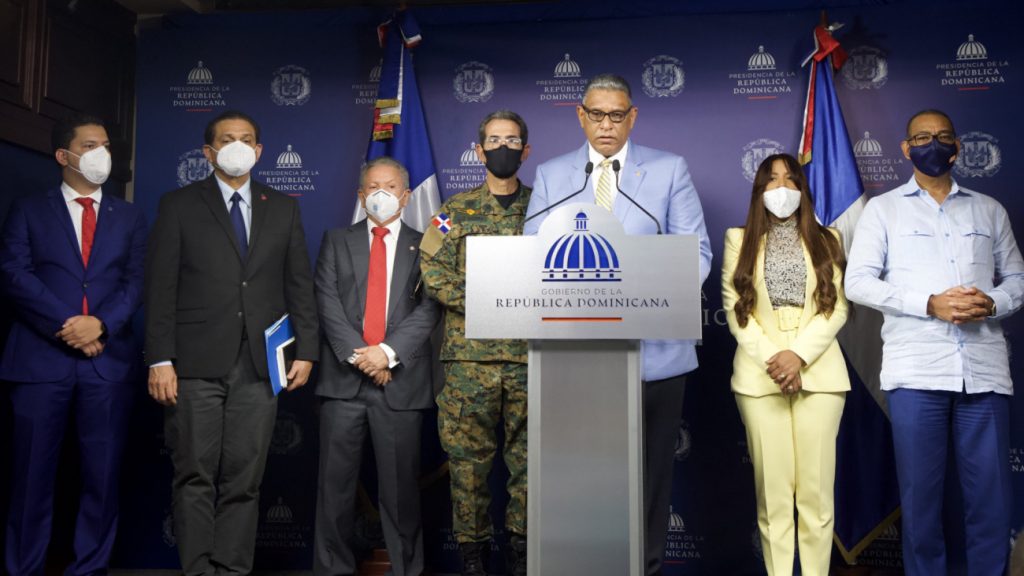
The Dominican government says it will be stepping up applying the law in regards to migratory controls. The announcement followed a meeting of the National Migration Council (CNM) on Tuesday, 28 September 2021 at the Presidential Palace. Interior & Police Minister Jesus (Chu) Vásquez announced the special measures that are taken after the worsening of Haiti’s political and social crisis following the murder of Haitian President Jovenel Moise on 7 July 2021. The focus in part is on reducing the flow of undocumented workers and tackling birthing tourism.
The measures include a deadline for contractors and individuals who hire labor in violation of the Dominican Republic’s immigration and labor laws. Employers and individuals who have irregularly hired foreigners are given three months to regularize the status of their employees or face fines ranging from five to 30 minimum wages.
Interior and Police Minister Vásquez explained that once the established term has expired, all companies or employers who require the labor services of foreigners, must hire them in accordance with the legal parameters established in the immigration and labor regulations of the Dominican Republic, including the procedure and requirements established in Law 285-04, its implementing Regulation 631-11, as well as the applicable labor laws and regulations.
He says the employers must comply with Articles 135 to 140 of the Labor Code of the Dominican Republic that establish the proportionality a ceiling of 20% of foreign workers hired by a company or employer.
In compliance with the law, Vasquez also announced new efforts to prevent the entry of foreigners that imply an unreasonable burden on public finances. He said this includes women who are in their sixth month or pregnancy or more. Trafficking of pregnant women is a regular practice. The women are taken to Dominican public hospitals where they give birth for free. In border hospitals, most births are to Haitian women, and in major hospitals, such as those in Santiago and leading public maternity hospitals in the National District, upwards of 30% are to Haitian women.
Vasquez stated: “The regulation and control of the movement of persons entering and leaving the territory of the Dominican Republic is an inalienable right of the Dominican state, but for many years the exercise of this right has been partial or null, affecting national interests and harming our sovereignty.” Hundreds of thousands of undocumented Haitians work in farms, construction and street sales, janitors and house help.
He stated that the present administration has a clear and firm position on the best way to handle this persistent problem and the only possible solution is the compliance with migratory legislation. “The Ministry of Interior and Police has the mission to ensure compliance with the General Migration Law and implement the Dominican state’s migration policy as the presiding body of the National Migration Council,” he said.
Read more in Spanish:
Presidency
El Caribe
El Dia
Diario Libre
Hoy
Listin Diario
Listin Diario
N Digital
29 September 2021

